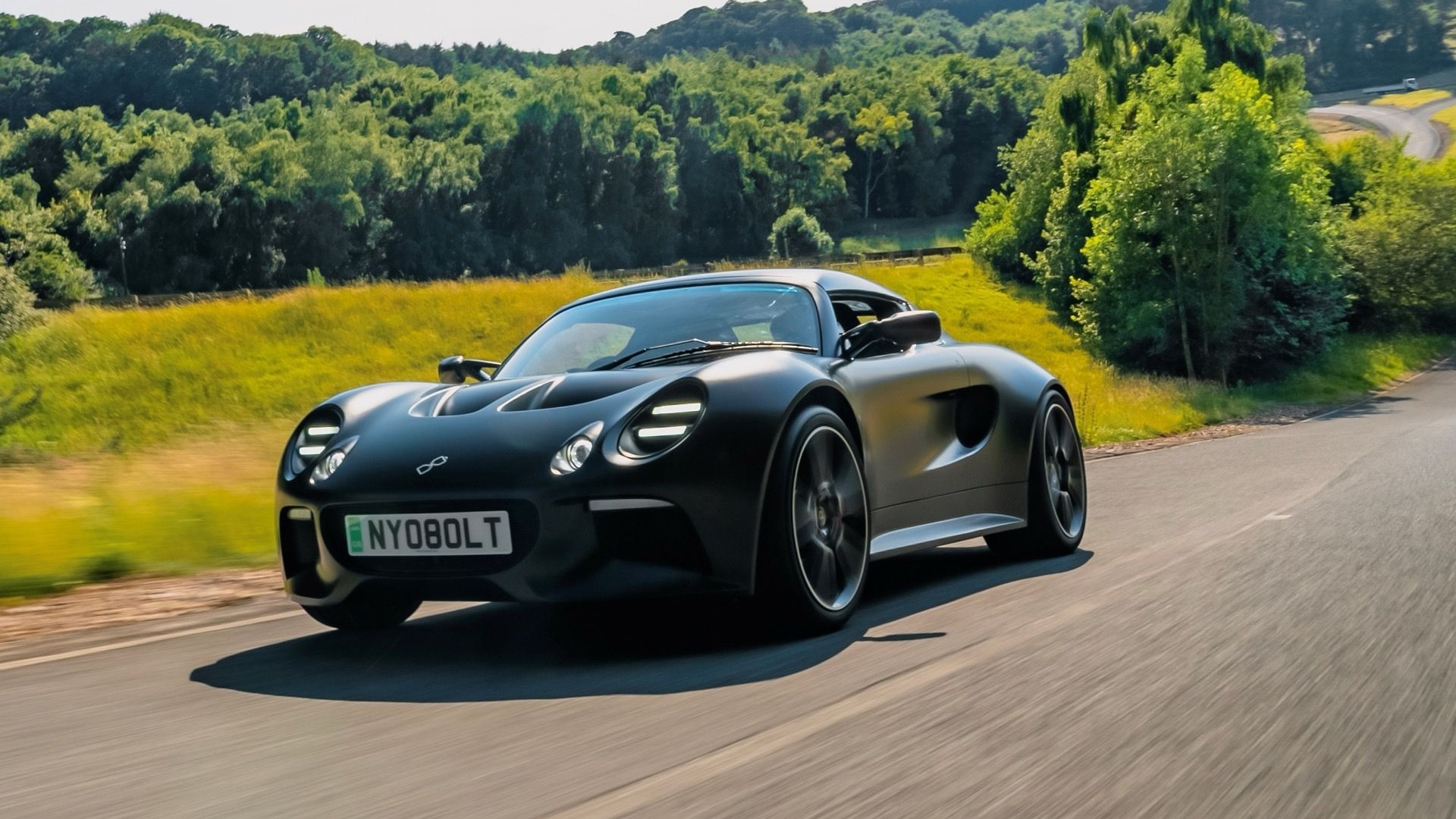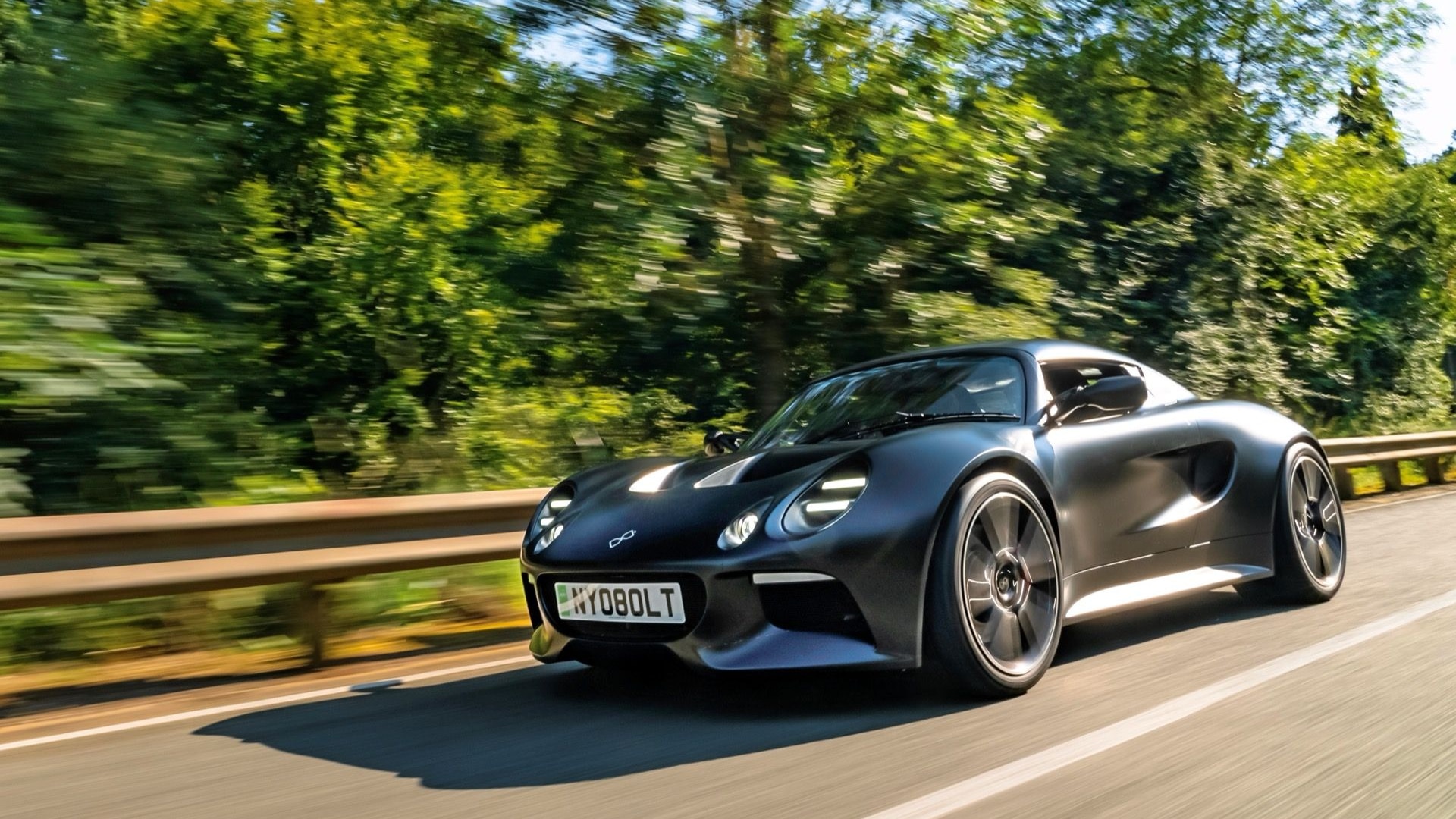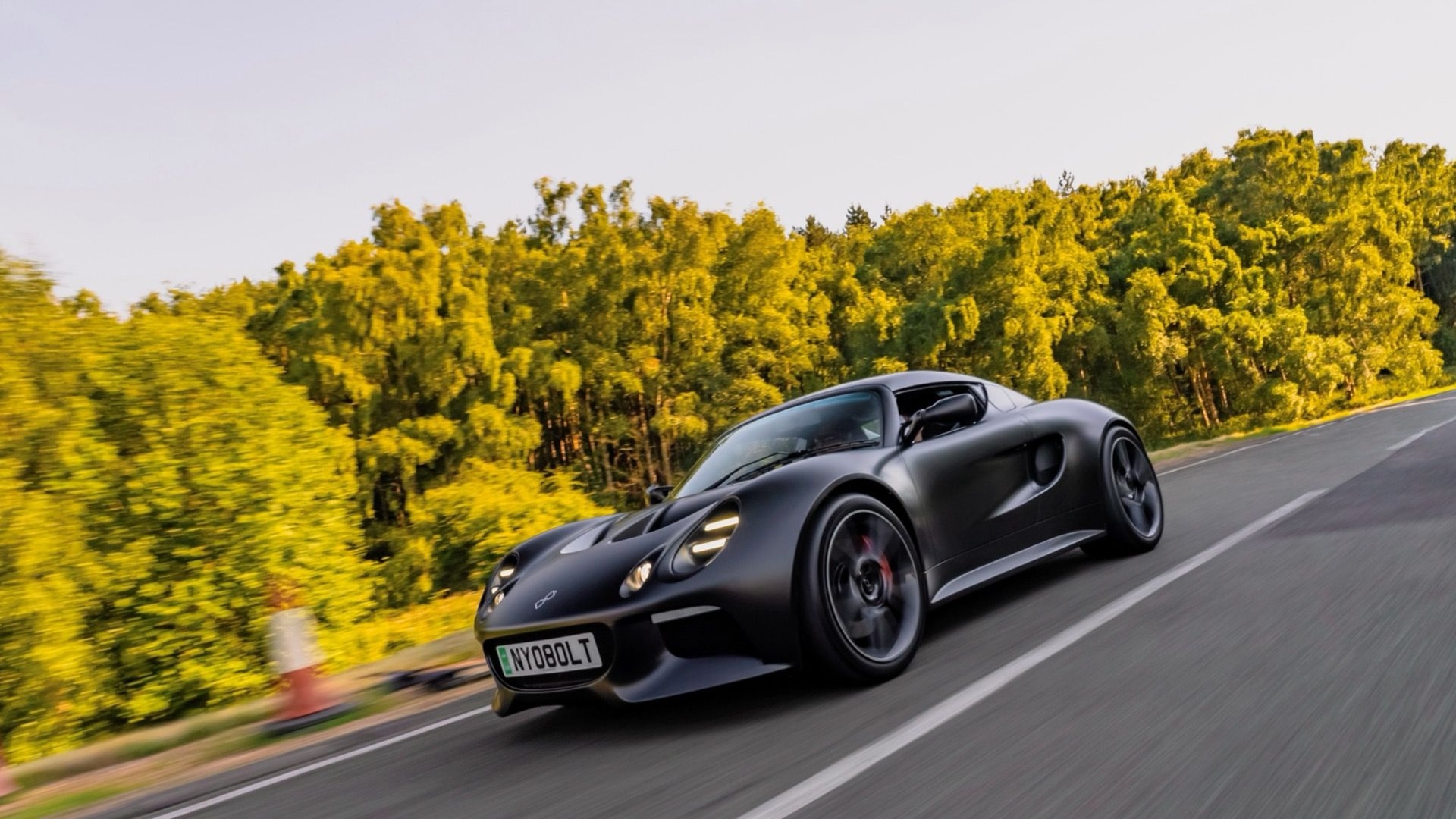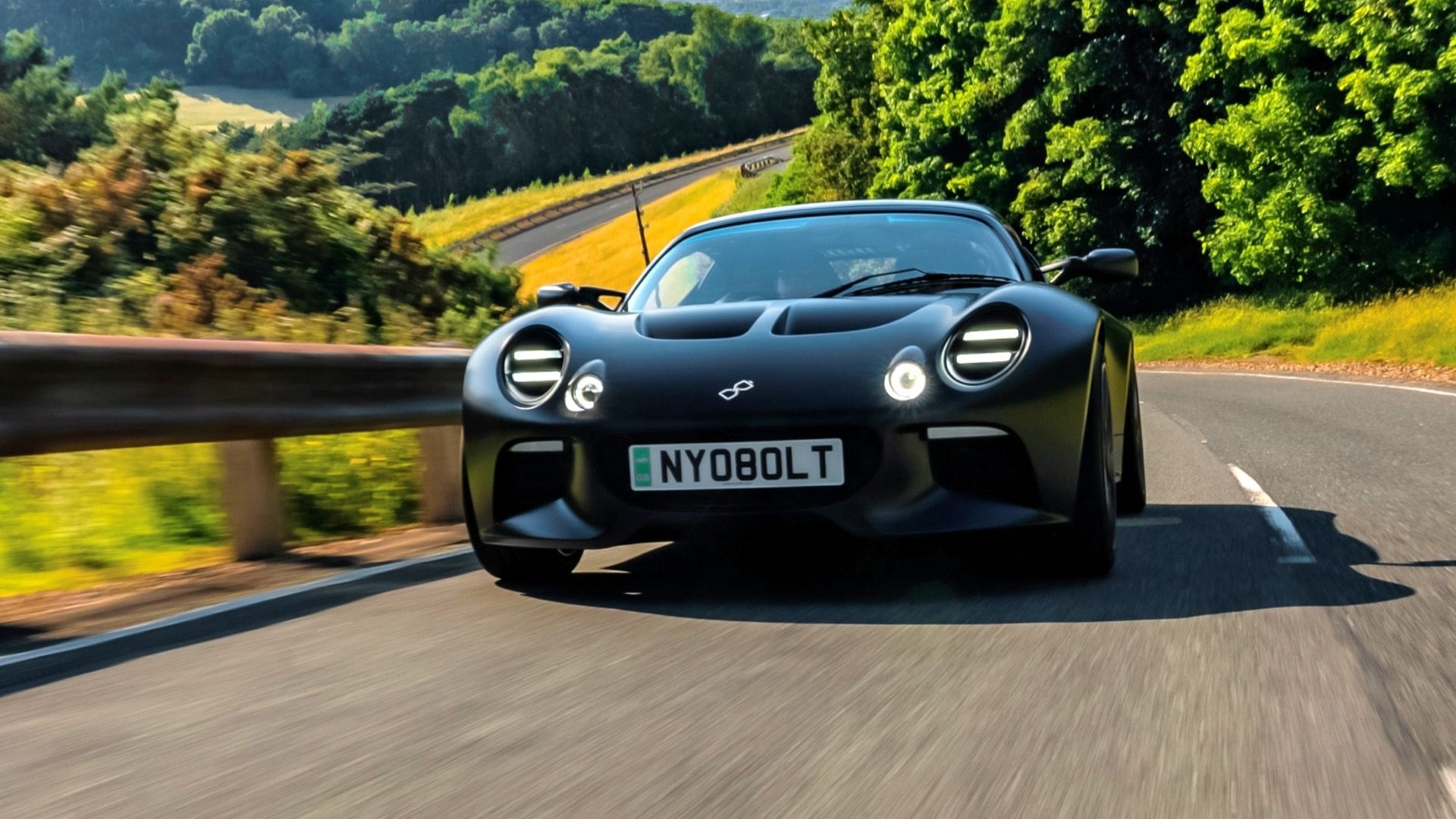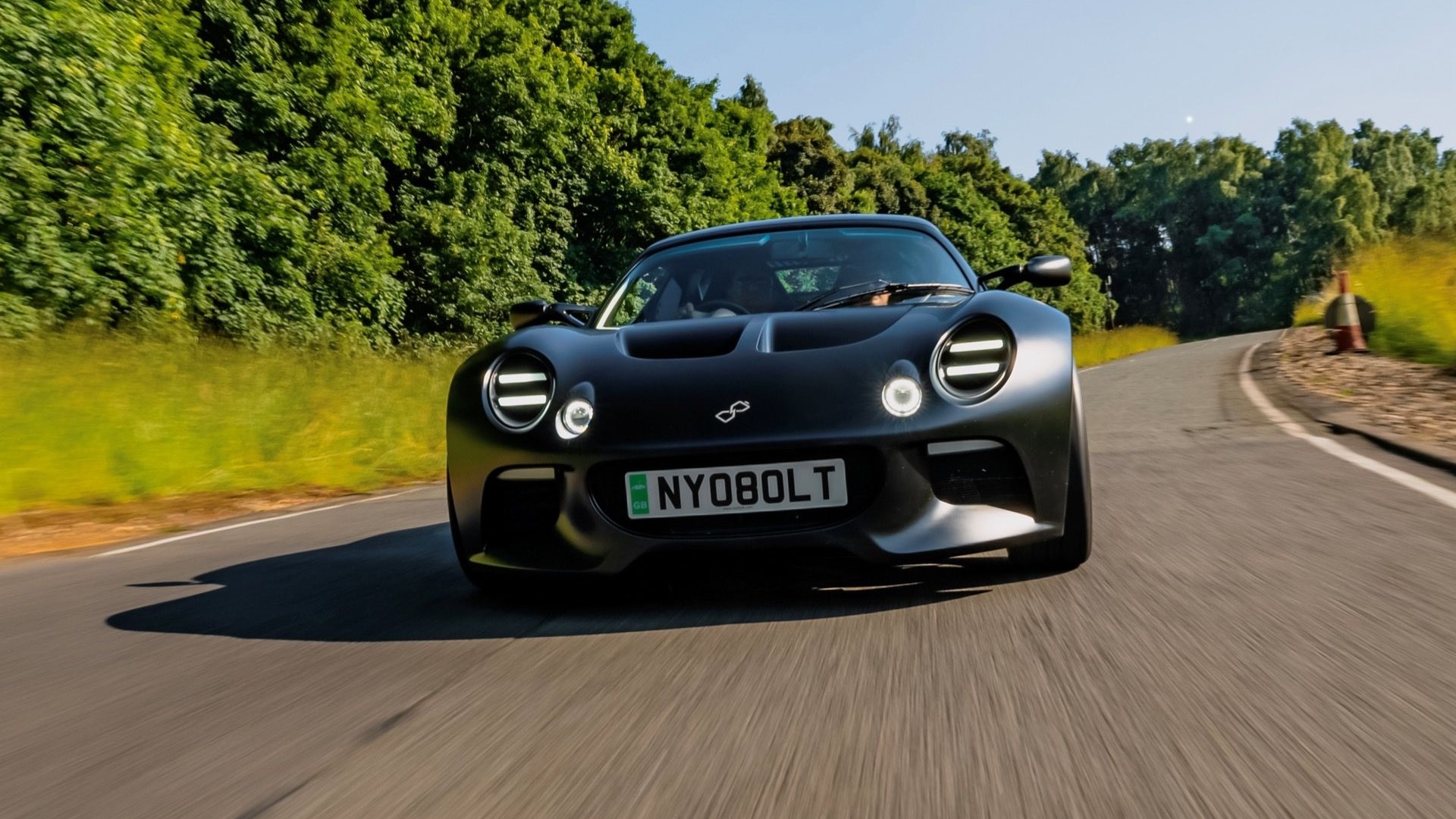When it comes to sports cars, small and light is the ideal. Heavy battery packs make that hard to achieve with EVs, but U.K.-based Nyobolt claims to have the solution.
Nyobolt has developed battery tech that allows for ultra-fast charging, which the startup believes will obviate the need for big battery packs. If drivers can charge quick enough, they'll be able to live with smaller packs, the thinking goes.
To prove its point, Nyobolt commissioned a prototype electric sports car from Callum, the design firm founded by former Jaguar design boss Ian Callum. Nyobolt says the prototype's 35-kwh battery pack is compact enough to allow a 2,750-pound curb weight that's within 100 pounds of the original Lotus Elise-based Tesla Roadster.
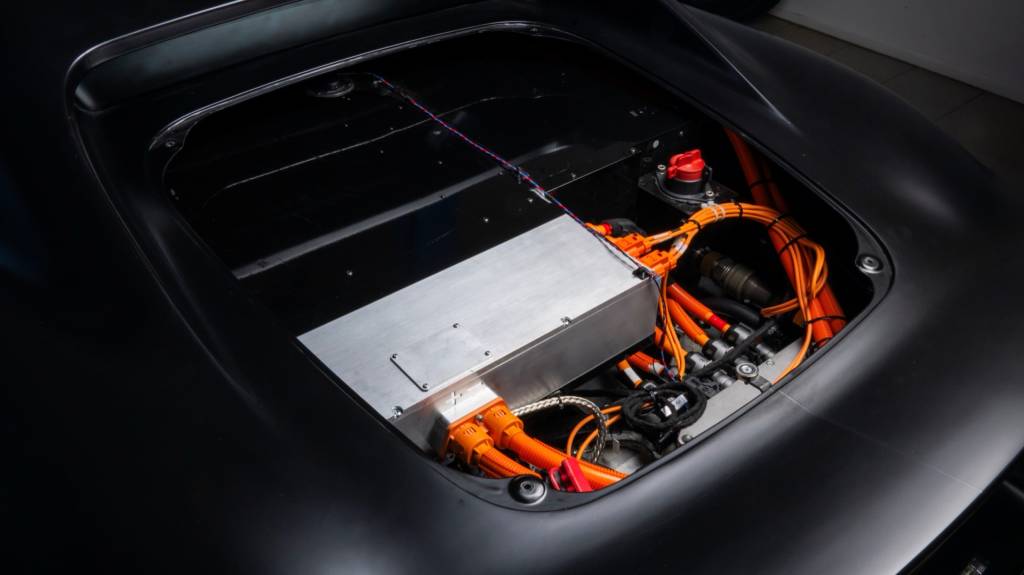
Nyobolt electric sports car prototype
Nyobolt previewed the electric sports car and charging tech last year, but now it's hitting the road. The startup says this prototype "will advance testing of the technology in the real world, enabling OEMs to experience Nyobolt's ultra-fast charging technology first hand."
A claimed 10%-80% charge time of under five minutes means the Nyobolt pack is charging at around 350 kw a significant portion of the time. Nyobolt says the first four minutes of the pack's charging session—on a CCS connector—is maxed out at a constant current of 500 amps, adding 120 miles of WLTP range (equivalent to about 100 miles on the EPA testing cycle) in that time.
High-power charge rates normally cause concern about battery-cell degradation, but Nyobolt claims to address this with niobium oxide anode materials in its low-impedance lithium-ion cells. It says the 24.5-Ah cells have completed fast-charge cycles equivalent to more than 600,000 miles of use.
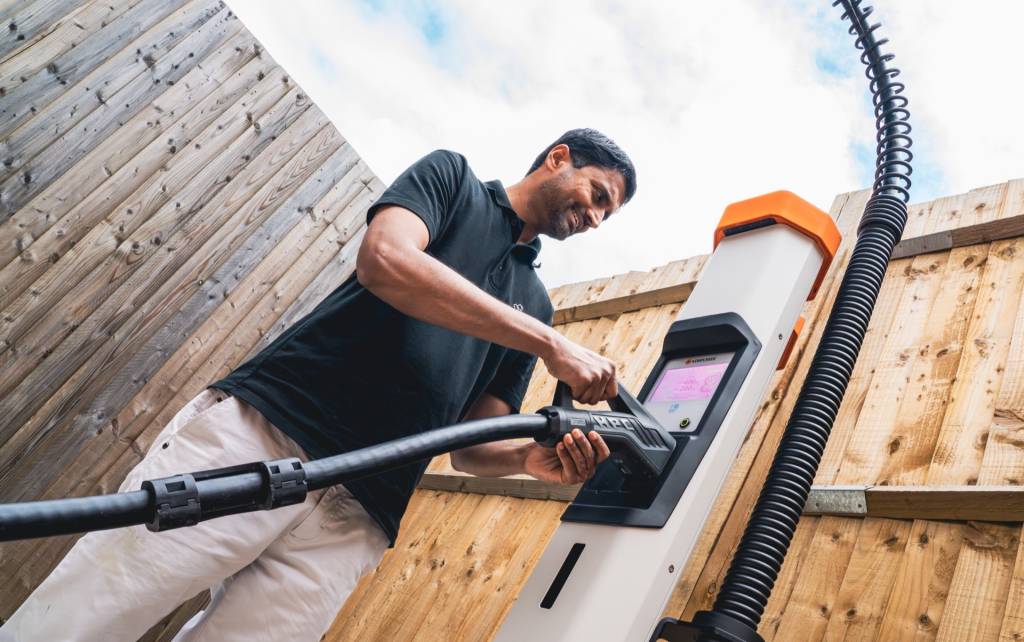
Nyobolt electric sports car prototype
In this application, a battery cooling circuit incorporates a chiller and AC compressor/condenser, keeping battery temperatures at no higher than 140 degrees Fahrenheit.
Nyobolt says its battery cells could enter low-volume production within a year, allowing for 1,000 packs in 2025. The startup also claims to be in talks with eight different automakers regarding use of its tech in high-performance EVs.
